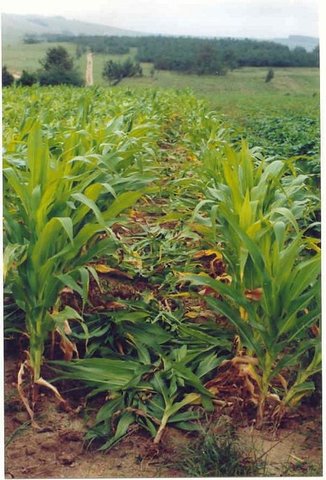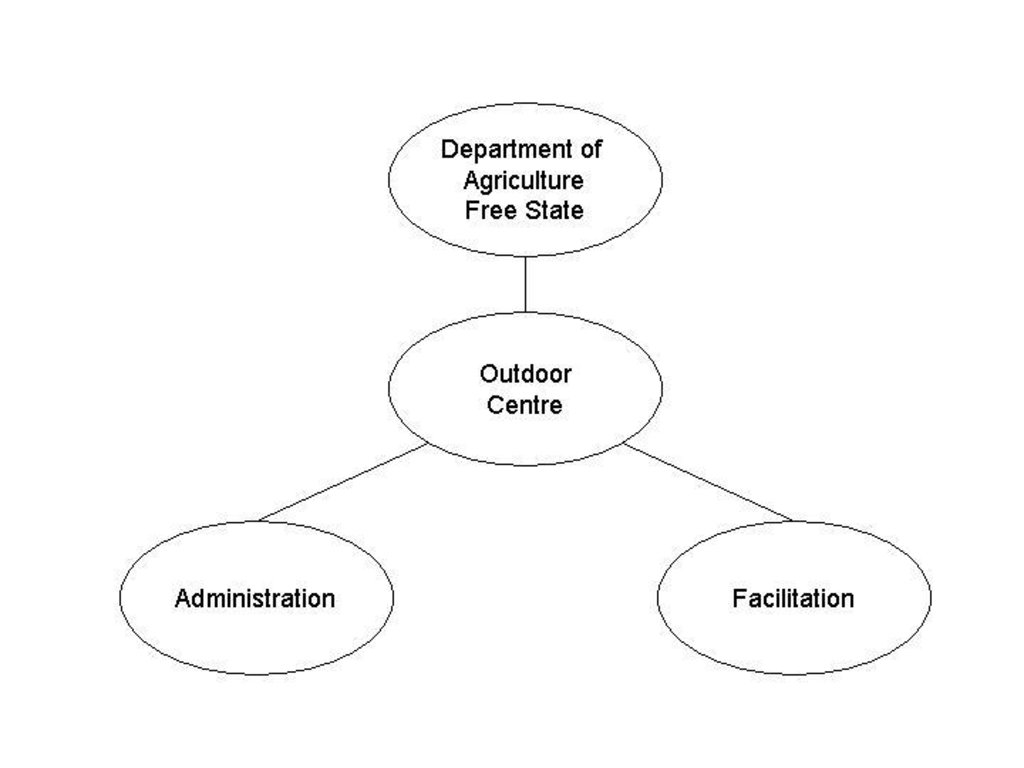Multi-stakeholder LandCare process [ប្រទេសអាហ្រ្វិកខាងត្បូង]
- ការបង្កើត៖
- បច្ចុប្បន្នភាព
- អ្នកចងក្រង៖ Hendrik Johannes Smith
- អ្នកកែសម្រួល៖ –
- អ្នកត្រួតពិនិត្យ Fabian Ottiger
Multi-stakeholder process, LandCare, Action research
approaches_2561 - ប្រទេសអាហ្រ្វិកខាងត្បូង
ពិនិត្យមើលគ្រប់ផ្នែក
ពង្រីកមើលទាំងអស់ បង្រួមទាំងអស់1. ព័ត៌មានទូទៅ
1.2 ព័ត៌មានលម្អិតពីបុគ្គលសំខាន់ៗ និងស្ថាប័នដែលចូលរួមក្នុងការវាយតម្លៃ និងចងក្រងឯកសារនៃវិធីសាស្ត្រផ្សព្វផ្សាយ
អ្នកជំនាញឯកទេស SLM:
Hofer Peter
Amt für Landwirtschaft und Natur des Kantons Bern LANAT
Ruetti, 3052 Zollikofen
ប្រទេសស្វ៊ីស
ឈ្មោះអង្គភាពមួយ (ច្រើន) ដែលបានចងក្រងឯកសារ/ វាយតម្លៃលើវិធីសាស្ត្រផ្សព្វផ្សាយ (បើទាក់ទង)
Amt für Landwirtschaft und Natur des Kantons Bern (LANAT) - ប្រទេសស្វ៊ីស1.3 លក្ខខណ្ឌទាក់ទងទៅនឹងការប្រើប្រាស់ទិន្នន័យដែលបានចងក្រងតាមរយៈវ៉ូខេត
អ្នកចងក្រង និង(បុគ្គលសំខាន់ៗ)យល់ព្រមទទួលយកនូវលក្ខខណ្ឌនានាទាក់ទងទៅនឹងការប្រើប្រាស់ទិន្នន័យដែលបានចងក្រងតាមរយៈ វ៉ូខេត:
បាទ/ចា៎
1.4 ការយោងមួយ (ច្រើន) ទៅលើ (កម្រង) បញ្ជីសំណួរនៃបច្ចេកទេស SLM

Conservation Agriculture [ប្រទេសអាហ្រ្វិកខាងត្បូង]
Conservation agriculture included aspects such as crop rotation, mulching and no-tillage.
- អ្នកចងក្រង៖ Hester Gertruida Jansen van Rensburg
2. ការពណ៌នាអំពីវិធីសាស្ត្រផ្សព្វផ្សាយ SLM
2.1 ពណ៌នាសង្ខេបខ្លីពីវិធីសាស្ត្រផ្សព្វផ្សាយ
A multi-stakeholder approach using action research methodologies to implement conservation agriculture
2.2 ពណ៌នាលម្អិតពិវិធីសាស្ត្រផ្សព្វផ្សាយ
ពណ៌នាលម្អិតពិវិធីសាស្ត្រផ្សព្វផ្សាយ:
Aims / objectives: - To develop and diffuse conservation agriculture technologiy
- To develop capacity among stakeholders
- To improve soil health
- To reverse soil degradation
Methods: - Training of trainers, i.e. lead farmers and extension worker
- Awareness events, e.g. farmer days, field days
- On-farm experimentation
- Farmer-to-farmer extension
- Local institutionalization
- Partnerships Monitoring and Evaluation
Stages of implementation: 1. Stakeholder analysis
2. Diagnosis / Situation analysis
3. Planning and design
4. Implementing and management
5. Learning and adopting
6. Exit strategy
Role of stakeholders: Researchers: - facilitators, advisors, trainers, management of trials
Extension worker:- advisors, trainers
Lead farmers: Trainers for other farmers, awarenes builders, on-farm: leaders of farmer managed trials/experiments, facilitators for learning groups
Other important information: Other stakeholders, e.g. input suppliers are also important and need to be involved at various stages and events
2.5 ប្រទេស/តំបន់/ទីតាំងកន្លែង ដែលវិធីសាស្ត្រផ្សព្វផ្សាយត្រូវបានអនុវត្តន៍
ប្រទេស:
ប្រទេសអាហ្រ្វិកខាងត្បូង
តំបន់/រដ្ឋ/ខេត្ត:
South Africa / KwaZulu-Natal
បញ្ជាក់បន្ថែមពីលក្ខណៈនៃទីតាំង:
Bergville / Emmaus Ward
2.6 កាលបរិច្ឆេទនៃការចាប់ផ្តើម និងបញ្ចប់នៃវិធីសាស្រ្តផ្សព្វផ្សាយនេះ
សូមបញ្ជាក់ឆ្នាំដែលបានបង្កើតឡើង:
2000
ឆ្នាំបញ្ចប់ (ប្រសិនបើវិធីសាស្ត្រផ្សព្វផ្សាយត្រូវបានឈប់ប្រើប្រាស់):
2006
2.7 ប្រភេទនៃវិធីសាស្ត្រផ្សព្វផ្សាយ
- ផ្អែកលើគម្រោង/កម្មវិធី
2.8 គោលបំណង/ទិសដៅសំខាន់នៃវិធីសាស្ត្រផ្សព្វផ្សាយ
The Approach focused on SLM only
Build capacity among key stakeholders Change traditional practices to conservation agriculture practices Build strong local institutions (learning groups) Improve experimental skills Improve soil health
The SLM Approach addressed the following problems: Soil erosion Soil fertility and -acidity Poverty / food security Lack of knowledge and skills Poor / weak local institutions
2.9 លក្ខខណ្ឌអនុញ្ញាត ឬរារាំងការអនុវត្តន៍បច្ចេកទេសដែលស្ថិតនៅក្រោមវិធីសាស្រ្តផ្សព្វផ្សាយ
ភាពអាចរកបាននៃធនធានហិរញ្ញវត្ថុ និងសេវាកម្ម
- រារាំង
Lack of capital inputs
Treatment through the SLM Approach: Groups save money to buy inputs in bulk
បរិបទនៃស្ថាប័ន
- រារាំង
Poor local institutions, poor leadership
Treatment through the SLM Approach: Building capacity in learning groups to learn and adapt / develop leadership / facilitation skills
ក្របខណ្ឌច្បាប់ (សិទ្ធិកាន់កាប់ដីធ្លី កម្មសិទ្ធីប្រើប្រាស់ដីនិងទឹក)
- អំណោយផល
The existing land ownership, land use rights / water rights moderately helped the approach implementation: Helped ot introduce grazing system that promotes rotational grazing, which is a major new approach for communal grazing.
3. ការចូលរួម និងតួនាទីរបស់ភាគីពាក់ព័ន្ធ
3.1 អ្នកពាក់ព័ន្ធដែលបានចូលរួមក្នុងវិធីសាស្ត្រផ្សព្វផ្សាយ និងតួនាទីរបស់ពួកគេ
- អ្នកប្រើប្រាស់ដីក្នុងតំបន់/សហគមន៍
Different cultural roles and attitudes between men and women. Women were better performers in training others; women were easier trained than men
- អង្គការក្រៅរដ្ឋាភិបាល
- រដ្ឋាភិបាលថ្នាក់ជាតិ (អ្នករៀបចំផែនការ អ្នកសម្រេចចិត្ត)
- អង្គការអន្តរជាតិ
3.2 ការចូលរួមរបស់អ្នកប្រើប្រាស់ដីក្នុងតំបន់/ សហគមន៍ក្នុងតំបន់ក្នុងដំណាក់កាលផ្សេងគ្នានៃវិធីសាស្រ្តផ្សព្វផ្សាយ
| ការចូលរួមរបស់អ្នកប្រើប្រាស់ដីក្នុងតំបន់/សហគមន៍ក្នុងតំបន់ | សូមបញ្ជាក់នរណាត្រូវបានចូលរួម ព្រមទាំងពណ៌នាសកម្មភាពទាំងនោះ | |
|---|---|---|
| ការចាប់ផ្តើម/ការលើកទឹកចិត្ត | គ្មាន | Farmers were interviewed during the informal semi-structured survey |
| ការរៀបចំផែនការ | គ្មាន | |
| ការអនុវត្តន៍ | អន្តរកម្ម | Lead farmers were part of implementing team; were responsible for farmer-to-farmer extension |
| ការត្រួតពិនិត្យ និងវាយតម្លៃ | អន្តរកម្ម | Were fully involved in most monitoring and evaluation activities |
| Research | អន្តរកម្ម | Lead farmers were responsible for farmer mangaed trials |
3.3 គំនូសបំព្រួញ (ប្រសិនបើមាន)
ការពណ៌នា:
Junior Landcare FreeState organogram
អ្នកនិពន្ធ:
L Lindeque, Pretoria, South Africa (Free State)
3.4 ការសម្រេចចិត្តលើការជ្រើសរើសបច្ចេកទេស SLM
សូមបញ្ជាក់តើអ្នកណាជាអ្នកបានសម្រេចចិត្តក្នុងការជ្រើសរើសបច្ចេកទេសដើម្បីយកមកអនុវត្តន៍:
- អ្នកប្រើប្រាស់ដី ដោយមានការគាំទ្រពីអ្នកជំនាញឯកទេស SLM
ចូរពន្យល់:
Decisions on the method of implementing the SLM Technology were made by mainly by SLM specialists with consultation of land users
4. ជំនួយបច្ចេកទេស ការកសាងសមត្ថភាព និងការគ្រប់គ្រងចំណេះដឹង
4.1 ការកសាងសមត្ថភាព/ បណ្តុះបណ្តាល
តើវគ្គបណ្តុះបណ្តាលបានផ្តល់ឱ្យអ្នកប្រើប្រាស់ដី/អ្នកពាក់ព័ន្ធផ្សេងៗទៀតដែរឬទេ?
បាទ/ចា៎
សូមបញ្ជាក់តើអ្នកណាត្រូវបានបណ្តុះបណ្តាល:
- អ្នកប្រើប្រាស់ដី
ទម្រង់នៃការបណ្តុះបណ្តាល:
- ទីតាំងបង្ហាញ
- វគ្គបណ្តុះបណ្តាល
ប្រធានបទបណ្តុះបណ្តាល:
Conservation agriculture principles, communication, visionry, training, value adding
4.2 សេវាផ្តល់ប្រឹក្សាយោបល់
តើអ្នកប្រើប្រាស់ដីបានទទួលនូវសេវាផ្តល់ប្រឹក្សាដែរ ឬទេ?
បាទ/ចា៎
សូមបញ្ជាក់ប្រសិនបើសេវាកម្មប្រឹក្សាយោបល់ត្រូវបានផ្តល់ឱ្យ:
- នៅលើដីរបស់អ្នកប្រើប្រាស់ដី
ពណ៌នា/ពន្យល់:
Name of method used for advisory service: Multi-stakeholder process using action research; Key elements: Monitoring and evaluation / experiments, Training of farmers, Farmer-to-farmer extension
Advisory service is quite adequate to ensure the continuation of land conservation activities; Have been empowered quite successfully with project
4.4 ការត្រួតពិនិត្យ និងវាយតម្លៃ
តើការត្រួតពិនិត្យ និងវាយតម្លៃគឺជាផ្នែកមួយនៃវិធីសាស្ត្រដែរឬទេ?
បាទ/ចា៎
មតិយោបល់:
bio-physical aspects were regular monitored through measurements; indicators: Soil health
technical aspects were regular monitored through measurements; indicators: Conservation agriculture principles adopted
socio-cultural aspects were regular monitored through observations; indicators: Changes in SKA
economic / production aspects were regular monitored through measurements; indicators: Yield & gross margin
area treated aspects were regular monitored through observations; indicators: Area
no. of land users involved aspects were regular monitored through measurements; indicators: Number of farmers trained
management of Approach aspects were None monitored through measurements; indicators: Number of farmers using tools for adaptive management
There were many changes in the Approach as a result of monitoring and evaluation: Monitoring and evaluation was the main methodology used to induce change to focus, improve and integrate project management. Land users learned to use monitoring and evaluation tools to improve their learning in groups as well as their adaptive management capacity.
4.5 ការស្រាវជ្រាវ
តើការស្រាវជ្រាវ គឺជាផ្នែកមួយនៃវិធីសាស្រ្តដែរឬទេ?
បាទ/ចា៎
សូមផ្តល់ព័ត៌មានបន្ថែមទៀតឱ្យបានលម្អិត និងចង្អុលបង្ហាញនរណាដែលបានធ្វើការស្រាវជ្រាវ:
Action research through monitoring and evaluation; applied at different levels; used various tools and technologies to apply it. Action research was used to improve, focus and integrate project strategies
Research was carried out on-farm
5. ថវិកា និងសម្ភារៈឧបត្ថម្ភពីខាងក្រៅ
5.1 ថវិកាប្រចាំឆ្នាំសម្រាប់ផ្សព្វផ្សាយ SLM
ប្រសិនបើចំនួនពិតប្រាកដនៃថវិកាប្រចាំឆ្នាំមិនត្រូវបានដឹងច្បាស់ សូមប្រាប់ពីចន្លោះនៃថវិកានោះ:
- 10,000-100,000
មតិយោបល់ (ឧ. ប្រភពសំខាន់នៃមូលនិធិ/ម្ចាស់ជំនួយចំបង):
Approach costs were met by the following donors: government (LandCare programme,90%, Research programme 10%): 100.0%
5.2 ការគាំទ្រផ្នែកហិរញ្ញវត្ថុ / សម្ភារៈដែលបានផ្តល់ទៅឱ្យអ្នកប្រើប្រាស់ដី
តើអ្នកប្រើប្រាស់ដីបានទទួលការគាំទ្រផ្នែកហិរញ្ញវត្ថ/សម្ភារៈសម្រាប់ការអនុវត្តន៍បច្ចេកទេសដែរឬទេ:
បាទ/ចា៎
5.3 សូមបញ្ជាក់ពីធាតុចូលត្រូវបានផ្តល់បដិភាគ (រួមទាំងកម្លាំងពលកម្ម)
- សម្ភារៈ
| សូមបញ្ជាក់ ធាតុចូលណាខ្លះដែលបានផ្តល់បដិភាគ | កម្រិតទំហំប៉ុណ្ណា | សូមបញ្ជាក់ពីការបដិភាគ |
|---|---|---|
| ម៉ាស៊ីន | ផ្តល់ហិរញ្ញវត្ថុទាំងស្រុង | |
| ឧបករណ៍ | ផ្តល់ហិរញ្ញវត្ថុទាំងស្រុង | |
- កសិកម្ម
| សូមបញ្ជាក់ ធាតុចូលណាខ្លះដែលបានផ្តល់បដិភាគ | កម្រិតទំហំប៉ុណ្ណា | សូមបញ្ជាក់ពីការបដិភាគ |
|---|---|---|
| គ្រាប់ពូជ | ផ្តល់ហិរញ្ញវត្ថុមួយផ្នែក | |
| ជី | ផ្តល់ហិរញ្ញវត្ថុមួយផ្នែក | |
ប្រសិនបើកម្លាំងពលកម្មធ្វើដោយអ្នកប្រើប្រាស់ដី តើវាជាធាតុចូលដ៏សំខាន់មួយដែរ ឬទេ:
- ដោយស្ម័គ្រចិត្ត
មតិយោបល់:
Only labour on main trial was paid in cash, other was voluntary
5.4 ឥណទាន
តើឥណទានដែលបានផ្តល់នៅក្រោមវិធីសាស្ត្រផ្សព្វផ្សាយសម្រាប់សកម្មភាព SLM នេះយ៉ាងដូចម្តេច?
ទេ
6. ការវិភាគរកផលប៉ះពាល់ និងសេចក្តីសន្និដ្ឋាន
6.1 ផលប៉ះពាល់នៃវិធីសាស្ត្រផ្សព្វផ្សាយ
តើវិធីសាស្ត្រផ្សព្វផ្សាយជួយអ្នកប្រើប្រាស់ដីដើម្បីអនុវត្តន៍ និងថែទាំបច្ចេកទេស SLM?
- ទេ
- បាទ/ច៎ា បន្តិចបន្តួច
- បាទ/ច៎ា ជាមធ្យម
- បាទ/ច៎ា បានខ្លាំង
Conservation agriculture pronciples: no-till, mulching, multiple cropping, using special implements
Did other land users / projects adopt the Approach?
- ទេ
- បាទ/ច៎ា បន្តិចបន្តួច
- បាទ/ច៎ា ជាមធ្យម
- បាទ/ច៎ា បានខ្លាំង
Aim is to scale-out approach to other projects/ programmes.
Did the Approach help to alleviate poverty?
- ទេ
- បាទ/ច៎ា បន្តិចបន្តួច
- បាទ/ច៎ា ជាមធ្យម
- បាទ/ច៎ា បានខ្លាំង
They achieved food security status; could sell some products and some of the value added products
6.3 សកម្មភាពផ្សព្វផ្សាយដែលប្រកបដោយចីរភាព
តើអ្នកប្រើប្រាស់ដីអាចធ្វើឱ្យមានចីរភាពនូវអ្វីដែលត្រូវបានអនុវត្តន៍តាមរយៈវិធីសាស្ត្រផ្សព្វផ្សាយដែរឬទេ(ដោយពុំមានការគាំទ្រពីអ្នកខាងក្រៅ)?
- បាទ/ចា៎
6.4 ភាពខ្លាំង/ គុណសម្បត្តិនៃវិធីសាស្ត្រផ្សព្វផ្សាយ
| ភាពខ្លាំង/ គុណសម្បត្តិ/ ឱកាស ទស្សនៈរបស់អ្នកប្រើប្រាស់ដី |
|---|
| Have higher level of knowledge and skills (How to sustain/ enhance this strength: Through experimentation, communication forums, field days, training courses) |
| Better contact with outside stakeholders - improved networks (How to sustain/ enhance this strength: Frequent stakeholder forums) |
| Higher status of lead farmers and their groups (How to sustain/ enhance this strength: Continuous contact and use of lead farmers' experience and capacity) |
| Improved food security through collective action (How to sustain/ enhance this strength: Monitoring and evaluation of sustainable land management practices) |
| Improved communication between land users (How to sustain/ enhance this strength: Frequent local action forums) |
| ភាពខ្លាំង/ គុណសម្បត្តិ/ ឱកាស ទស្សនៈរបស់បុគ្គលសំខាន់ៗ |
|---|
| Empower key stakeholders (How to sustain/ enhance this strength: Frequent stakeholder forums / meetings / workshops) |
| Help people 'learn how to learn' (How to sustain/ enhance this strength: Provide them with learning tools (monitoring and evaluation) and skills) |
| Promote a culture of adoptive management (How to sustain/ enhance this strength: Build their capacity through monitoring and evaluation tools and processes) |
| Develop a capacity to experiment among farmers (How to sustain/ enhance this strength: Facilitate and promote experiments through agricultural research) |
| Develop self-reliant local institutions and leadership (How to sustain/ enhance this strength: Develop local capacity to lead and facilitate learning groups) |
7. ឯកសារយោង និងវេបសាយ
7.1 វិធីសាស្ត្រ/ ប្រភពនៃព័ត៌មាន
- តាមការចុះទីវាល ការស្រាវជ្រាវនៅទីវាល
- ការសម្ភាសន៍ជាមួយអ្នកប្រើប្រាស់ដី
7.2 ឯកសារយោងដែលបានចេញផ្សាយ
ចំណងជើង អ្នកនិពន្ធ ឆ្នាំ ISBN:
Amt für Landwirtschaft und Natur des Kantons Bern LANAT, Ruetti, 3052 Zollikofen. Kanton Bern fördert Ressourcen schonenden Ackerbau.AGRARForschung 14 (3): 128-133, 2007
មានប្រភពមកពីណា? ថ្លៃដើមប៉ុន្មាន?
http://www.vol.be.ch/site/lanat-3155-mbressourcen.pdf
ការតភ្ជាប់ និងម៉ូឌុល
ពង្រីកមើលទាំងអស់ បង្រួមទាំងអស់ការតភ្ជាប់

Conservation Agriculture [ប្រទេសអាហ្រ្វិកខាងត្បូង]
Conservation agriculture included aspects such as crop rotation, mulching and no-tillage.
- អ្នកចងក្រង៖ Hester Gertruida Jansen van Rensburg
ម៉ូឌុល
គ្មានម៉ូឌុល


